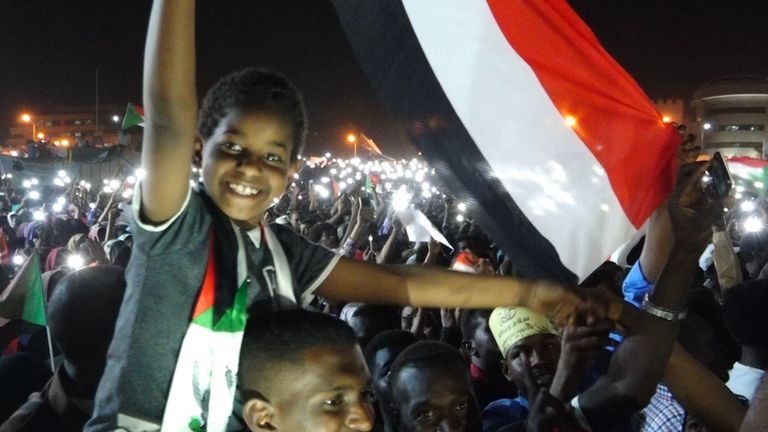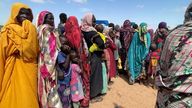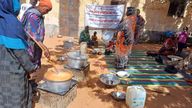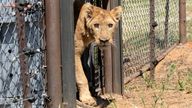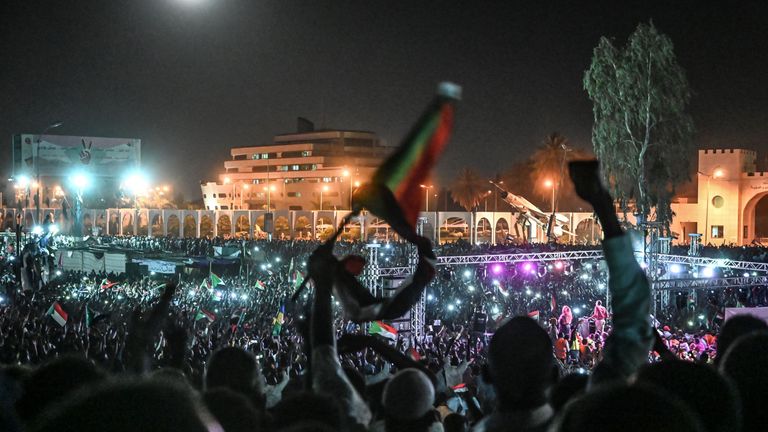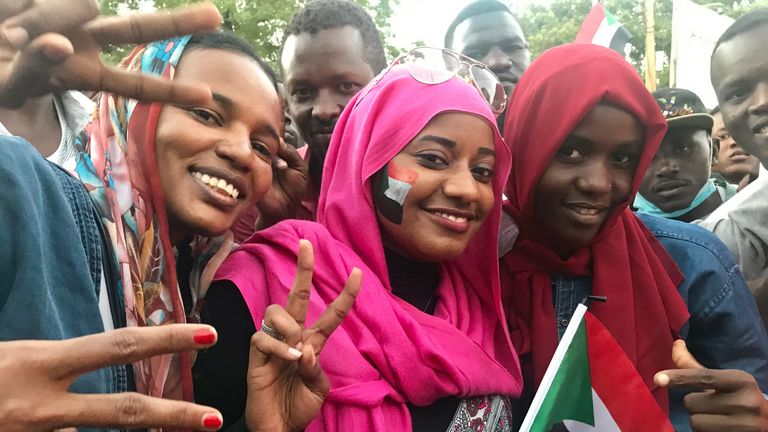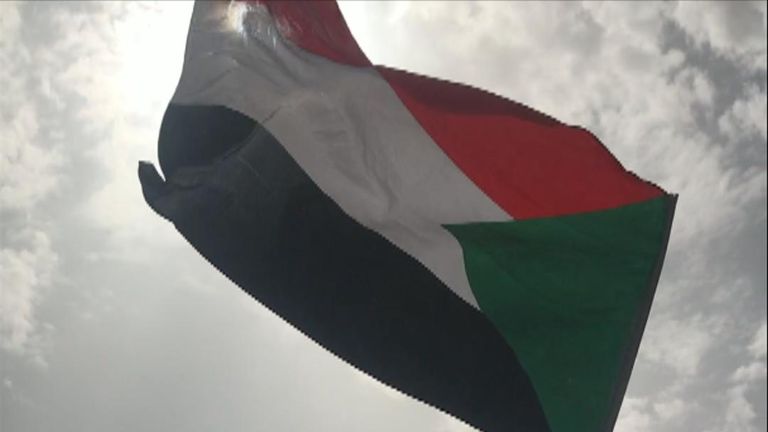Dangerous days in Sudan after leadership talks break down
Protesters suspend talks with the ruling military council after it fails to ensure a transfer to a civilian government.
Monday 22 April 2019 08:03, UK
Huge protests have been taking place in Sudan, with demonstrators demanding that the military hands power to civilians.
It comes after former president Omar al Bashir was ousted, with the military council taking over.
Sky's chief correspondent Stuart Ramsay reports from Sudan's capital.
Political insiders and people generally in the know here, have been warning me for days that the youth-led revolution in Sudan is far from done; it seems they were on the money.
You would never have known there were any doubts though, as tens of thousands gathered in the main protest square in Khartoum for a night they expected to celebrate long and hard.
They believed they were gathering to hear the names of the people who would make up the main part of a new civilian-led leadership council for the country.
As we pushed our way through the crowds towards a newly erected stage at one end of the square I was constantly hugged, clapped on the back and made to dance as pop music boomed through speakers.
Everyone welcomed me to the "New Sudan" as I passed.
I asked if this was it. "Yes this is it," they would shout above the music through beaming smiles of joy.
It was infectious stuff.
The clear night skies, bringing a pleasant drop in the temperature, seemed to indicate that this really was to be a night of celebration.
They are used to turning out in huge numbers but there was a special feeling in the air.
They filled the streets, clung to billboards and sign posts and hung off bridges.
It was closer to a rock concert than a political rally. Mobile phone lights twinkled in the darkness everywhere you looked as people sang and danced.
But there were already signs that things weren't right. Long delays and huddled conversations between staff on the stage seemed to unsettle the crowd.
Attempts were made to urge the crowd to join in revolutionary chants.
Then speeches began urging the people to remember that the revolution was not over and that they needed to remain on the streets.
I asked a young man if it was a good night.
"Not really," he said.
I asked him why and in essence he said what others had been saying: the military and the old guard don't want to hand over control.
From the stage the news finally came through that the protest leaders and the military council were having "problems" and that negotiations had now ceased.
The protesters say that old pro-government political parties had intervened with their own nominations for the new council.
The protest leaders said that despite their earlier agreement that the military need to be represented on that leadership council, they had decided they should have no representation.
They also said that they were to announce the new leadership themselves and no longer recognised the military leaders.
I've heard this gambit before - most recently in Venezuela.
It basically doesn't work unless a substantial section of the military are on your side.
There is nothing to indicate at this stage if that is actually the case here. But some major military figures have yet to show their hand - one way or the other.
Dr Mudawi Ibrahim Adam, a human rights specialist who has been imprisoned by the now overthrown Omar al Bashir a number of times, is widely tipped as a future prime minister, if agreement with the army can be reached.
He told me in the garden of his house that the current negotiations were in a dangerous phase.
He said political parties and indeed the military were all suspicious of each other and that there needed to be a new "strong prime minister".
He said that if there was a power vacuum there could be instability.
"Anything can happen, it could empower the military council more, because the military council - the transitional military council - will start using executive powers," he said.
"It will be very hard, very difficult for them, to leave these powers (for the civilian council)," he stressed.
How this breakdown in trust between the protesters and the military council will develop isn't clear yet. But it isn't good.
More and bigger protests are being planned. These are dangerous days. The celebrations are on hold.

